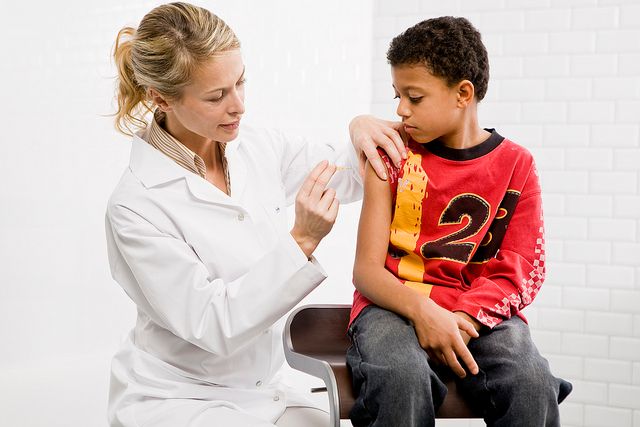
Why You Should Get Vaccinated
One of the modern medical achievements that we have to be thankful for is the vaccination shot. It might seem like a small thing, especially when so many of us get our shots when we're young, but getting vaccinated is essential for the health of your community.
Unfortunately, in recent years there's been a huge movement against vaccinations. Some of it is based on the now-disproved research of an English doctor named Andrew Wakefield, who claimed to have found a link between the MMR vaccine and signs of autism in children. Other reasons for rejecting vaccinations include religious ideas of body purity and a preference for homeopathic remedies and alternative medicine.
The truth is, however, that vaccinations aren't meant to treat a single person's illness. They're designed to prevent widespread exposure to serious diseases like the mumps, measles, polio, influenza, Hepatitis A and B, smallpox, and yellow fever. These diseases are usually transmitted inside a large population of people.
That means the best way to fight these diseases is to get as many people inoculated with a vaccine. This creates what's known as "herd immunity." The more people who are protected against a major disease, the less likely that disease can take root in a single body and spread. This is especially crucial for people with chronic conditions like diabetes, asthma, and heart disease; they would be far more vulnerable to such a sickness than most people.
Everywhere we go in the world today, we run the risk of contracting a serious illness. While for many people, this would mean getting the right vaccinations in order to travel to certain countries, it can also be a factor close to home. The workplace is full of people who might need protection from the flu, not to mention professionals in the healthcare industry who come into contact with different illnesses every day. Young people are also at risk because their bodies are still developing and they're coming into contact with new people; particular youth at risk include college students and sexually active teenagers.
Most vaccinations can be obtained from a child's early years through adolescence, but there are no restrictions on adults getting vaccinated either. It's most likely that a young child would receive an MMR shot while a teenager or adult would get vaccinated for a more sexual disease like Hepatitis B or HPV. The CDC also recommends that every person get a flu vaccination each year provided they don't have a medically sound reason not to do so. You should ask your local physician or pharmacist about which kind of vaccination you're likely to need.
For more information about vaccines, you can consult official online resources like Vaccines.gov and the WHO website.
Image by Sanofi Pasteur on Flickr
Categories
- Arts & Entertainment 100
- Automotive 186
- Business & Professional Services 219
- Construction & Contractors 298
- Clothing & Accessories 76
- Community & Government 95
- Computers & Electronics 74
- Education 75
- Food & Dining 86
- Health & Medicine 186
- Legal & Financial 100
- Home & Garden 179
- Industry & Agriculture 105
- Media & Communications 44
- Personal Care & Services 73
- Real Estate 68
- Shopping 74
- Sports & Recreation 87
- Travel & Transportation 102
- Animals & Pets 11
- Arts 9
- Community 9
- Chain 607
- Computers & Internet 8
- Health Care 10
- Communication & Media 7
- Shopping & Retail 10
- Health & Beauty 9
- Education & Schools 8
- Financial & Legal Services 14
- Home & Office 13
- Lawyers & Legal Services 7
- Financial & Services 1
